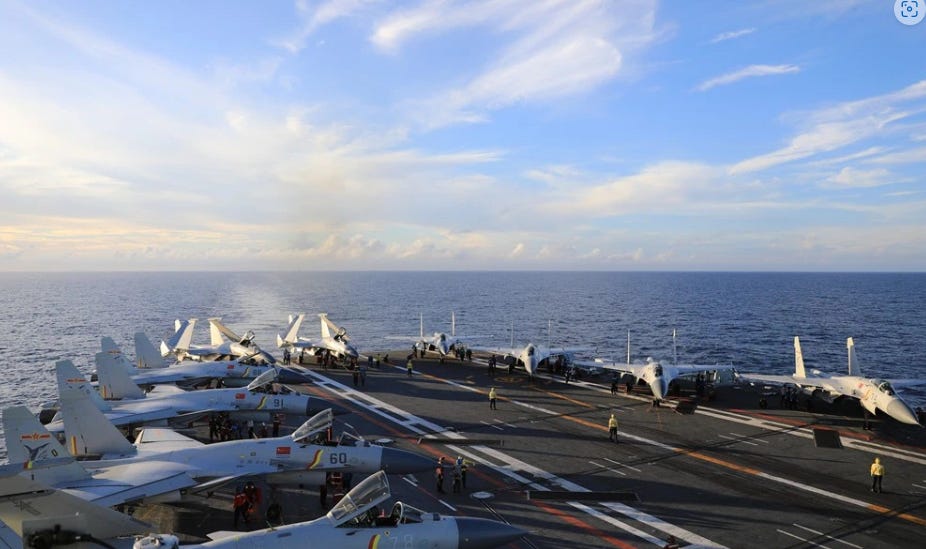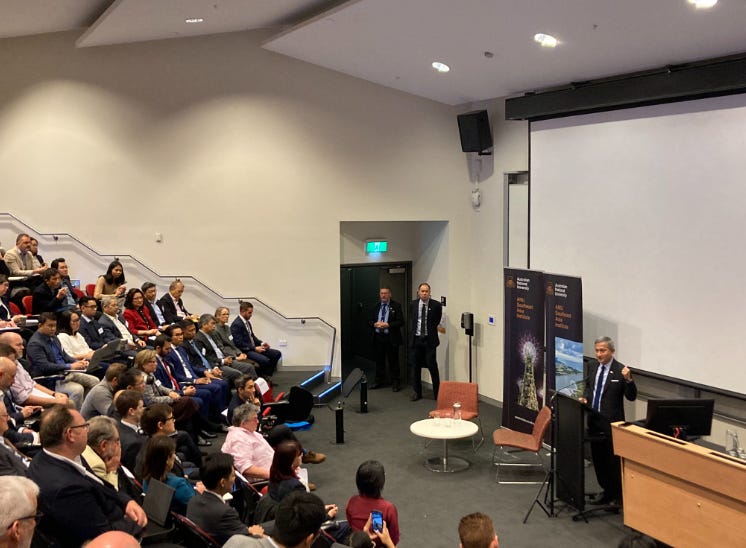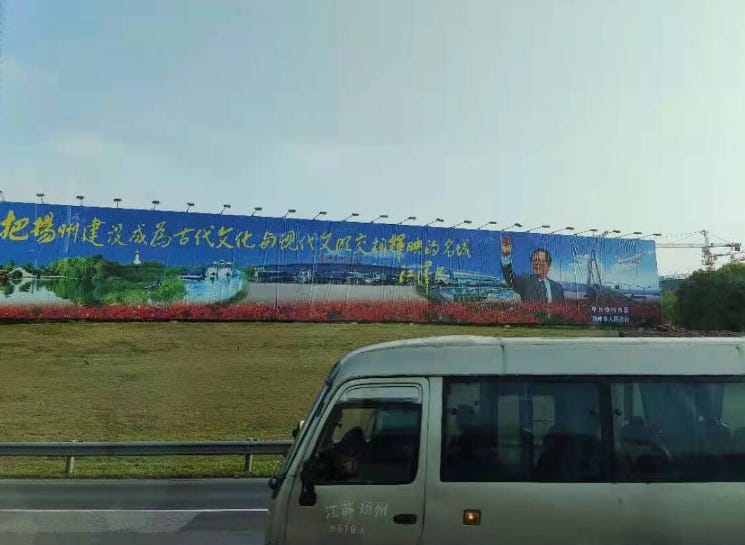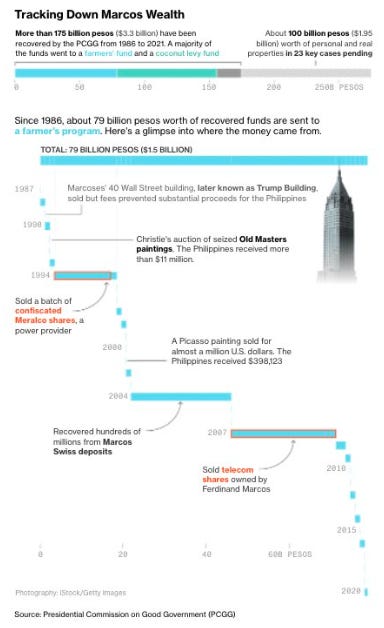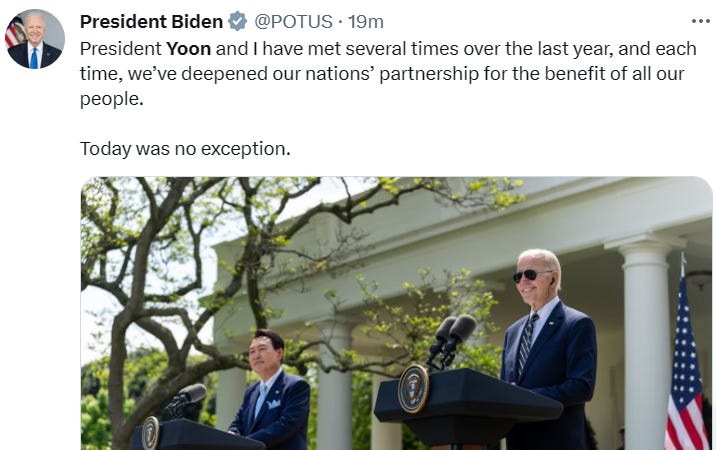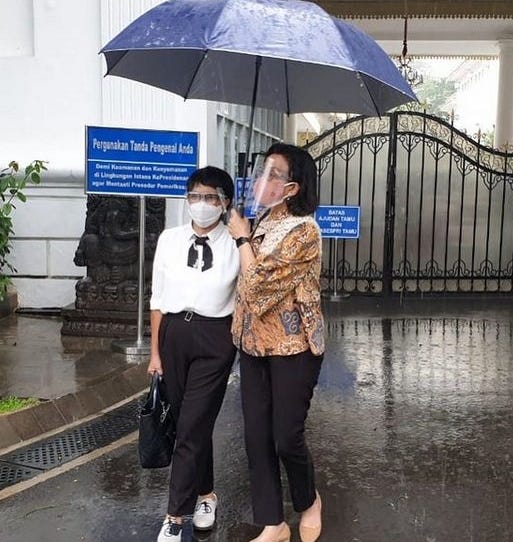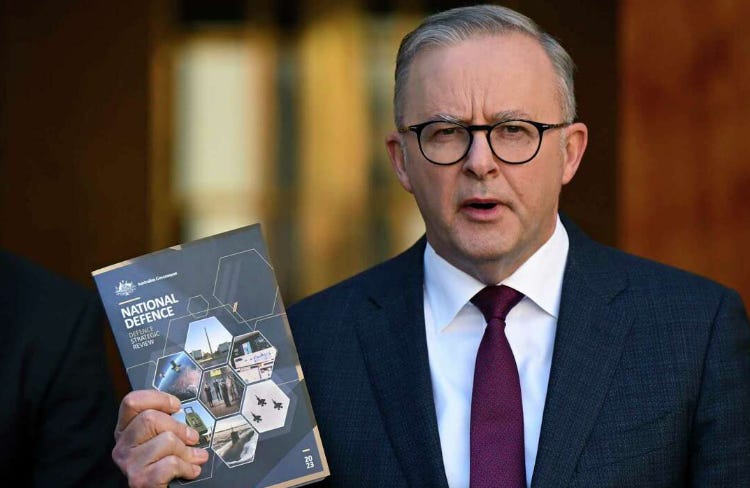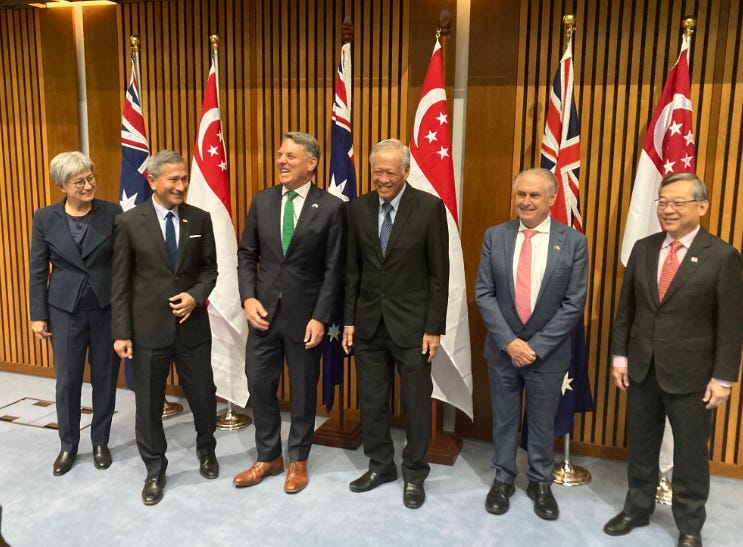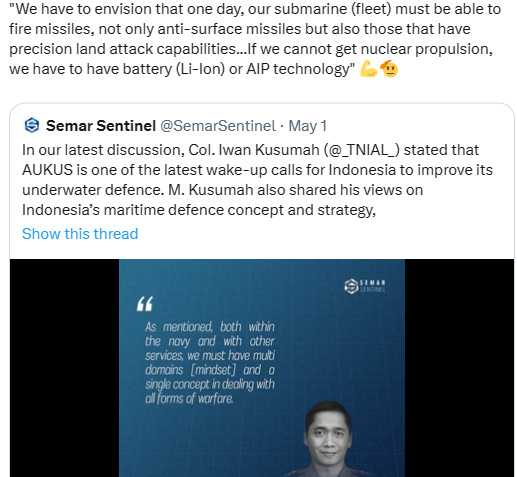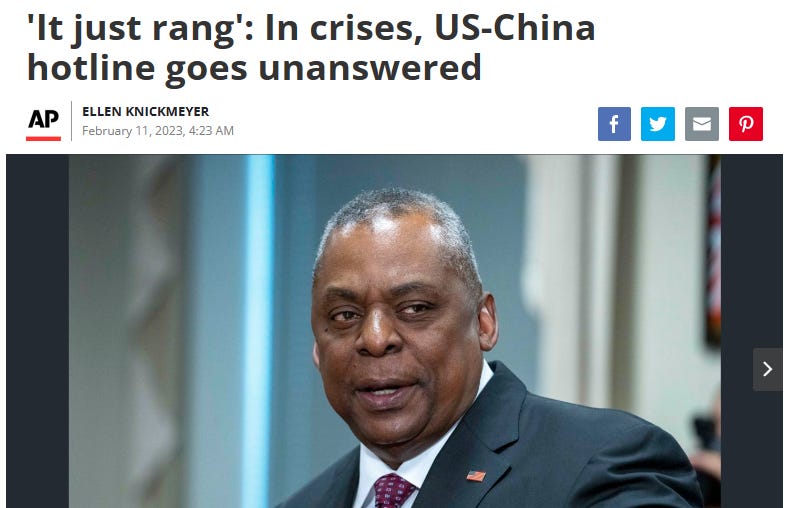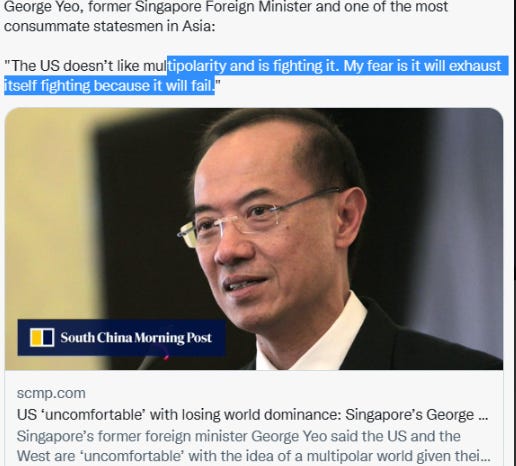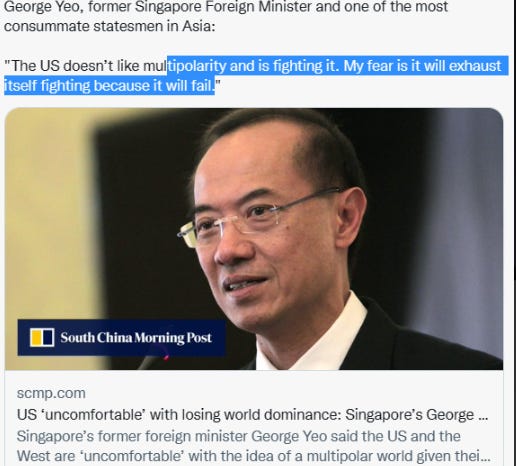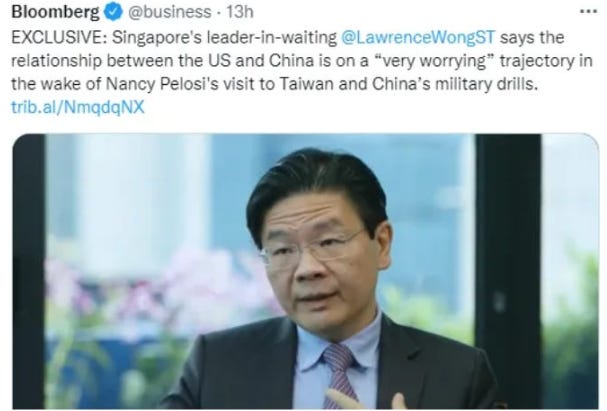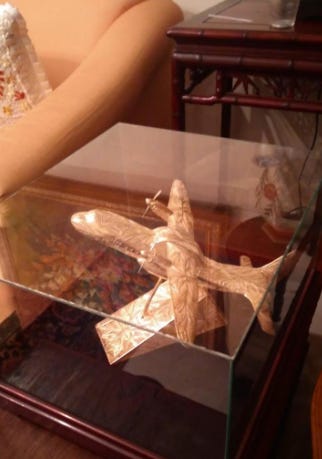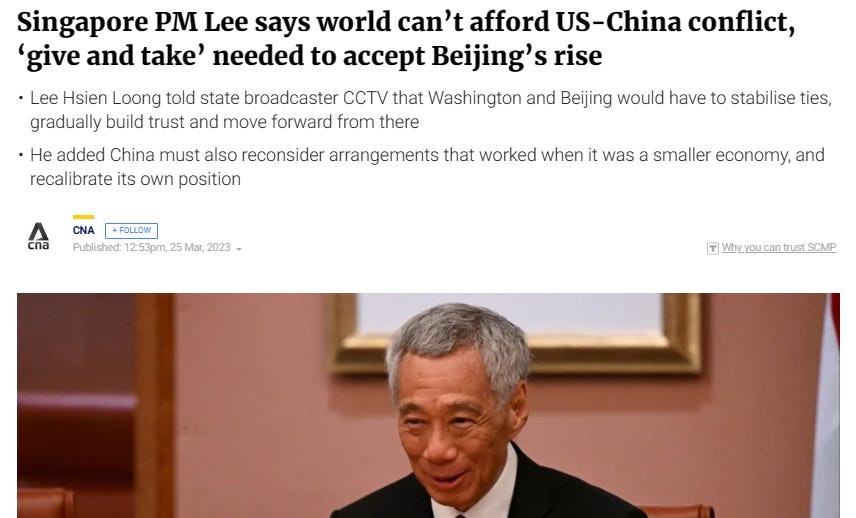Singapore Neutrality (Again), A Staunchest Allies for the West but Reluctant To "Loving" Taiwan
Unsurprisingly for me but maybe surprising for Caucasian people. One of staunchest allies for the West, insist on “very carefully” supporting Taiwan, thanks for the very massive “influx money” from Beijing to Singapore. Yes, Singapore very carefully on Taiwan-China crumbling.
After the late Lee Kuan Yew, former minister George Yeo Yong-Boon (Yáng Róngwén), PM Lee Hsien Loong, and (soon-will-replace LHL) Lawrence Wong Shyun Tsai, today Singapore FM Vivian Balakrishnan saying “very carefully” about Taiwan & China.
In ANU (Australian National University) Canberra, capital Australia, the (another) staunchest allies of not only the West but especially America, strikes a rather grim tone. The FM Vivian says intense competition between the US and China has almost completely obliterated strategic trust and created a “dysfunctional” relationship, raising the risk of catastrophic conflict. Balakrishnan says Taiwan is the reddest of red lines for Beijing. Crucial to maintain the status quo. He says “some” in the West want to frame its future as part of a broader ideological battle, which is “deeply worrying and dangerous.”
FM Vivian comment’s in Canberra only less than 18 hours after announcemet by Philippines government that Philippines President Bongbong Marcos left Manila for a visit to the United States as he seeks to bolster ties with Washington amid growing tensions with China in the disputed South China Sea. After an incident between China and the Philippines 2 days ago in the South China Sea. Also after FM China Qin Gang met Bongbong 10 days ago.
President Biden is courting Philippines leader Ferdinand “Bongbong” Marcos Jr., the son of a dictator Biden once opposed. Only less 120 hours after incident between Philippines - China in South China Sea. 2nd Leader landed in Washington DC after Biden announcement for 2024 (re)election. The 1st was South Korea Yoon Seok-yeol last Thursday.
Back to Vivian again.
The FM reiterates Southeast Asian nations do not want to be forced into choosing sides between the great powers. A familiar line. He also says Australia can play a “stabilising role” in the region, including by taking the lead on the “green revolution” and energy transition. This year's ASEAN Chairmanship is Indonesia. The Summit will not be so long from now.
Fairly relaxed and friendly vibe from Australian and Singaporean Ministers (including Vivian) in the wake of their 3 + 3 meeting in Canberra. A few bits/bobs out of this presser. Quite a bit of warmth between Ministers. Plenty of emphasis on common ground (and there is a fair amount of it) while differences are smoothly elided. Singapore again making it clear it's (broadly) comfortable with AUKUS. Singapore has expressed no "reservations." Still qualified however - supportive *insofar* as it "contributes constructively" to peace and stability.
Indonesia position:
Singapore's Trade Minister Gan Kim Yong plays a straight bat when asked whether China's economic coercion on Aus should have any bearing on its CP-TPP. He says it's a (breaking news) "consensus-based process." There are "high standards." Very familiar. Won't really be drawn.
Slightly odd line from Marles at the start. He emphasises there was a "conversation" around energy supplies/gas to Singapore: "we want to make clear that we regard Singapore's energy security as profoundly important in terms of Australia's national interest." China agrees to buy more LNG from Malaysia, Singapore’s neighbor, in the latest move to secure fuel supplies. China has been very busy locking-in long-term LNG deals to help feed its burgeoning gas demand. China’s reliance on spot LNG is curtailed over the longer term and they won’t be competing for spot LNG supplies.
Widespread breaches of the G-7 price cap on Russian energy likely took place in Asia in the first quarter.
I assume he's trying to address any potential concerns in Singapore around price caps/safeguard mechanism- as we've seen recently in Japan. But Marles gave slightly defensive response when asked, said it was "unremarkable" to bring up subject.
In May Day 2023 message, PM Lee said Singapore 'cautiously optimistic' about economic prospects amid volatile global environment, “Thanks” for prolonged war Russia-Ukraine and heated situation between China and Taiwan. Slower economic growth expected but Singapore should avoid outright contraction. The multilateral trading system is being progressively undermined by growing nationalist and protectionist sentiments, affecting international trade and cooperation. At the same time, economies around the world will be disrupted by emerging industries like the green and digital domains, and new technologies such as artificial intelligence. Singapore must adapt to these trends while buffering those who are adversely affected.”
Exclusive interview with CCTV China in March 25th, 2023, PM Lee says the rest of the world needs to recognise that the China of today is not what it was before, and accept that it now plays a bigger role on the global stage.
Cooperation and adjustment from both sides is essential because the world can ill afford conflict – especially between China and the United States, he added.
The prime minister spoke about relations between Beijing and other countries, including Singapore, in an interview with state broadcaster China Central Television (CCTV) for its Leaders Talk programme.
Since a long time ago, Lee Kuan Yew (when still alive) and his son, current PM Singapore Lee Hsien Loong arguably “set a burden, boundaries” with Taiwan, although enjoy massive investment from Taiwan in Singapore (WSJ said: Paycheck Investment between China and Taiwan, to widening diplomatic relation, and also “canceling” each other).
Just 36 hours before Lee Hsien-Loong speech about May Day, April 29th, LHL recently managed what few other global leaders would be able or willing to do: travel to China and publicly praise a US-led Asian initiative. “Asia should always remain an open region,” Lee said at the Boao Forum for Asia in Hainan. “As Asian countries develop co-operation among ourselves, we should also cultivate our relations with the US, Europe and other parts of the world.”
That Lee commended the Indo-Pacific Economic Framework — a trade initiative intended to reassert US engagement in the region with an alternative to Beijing’s economic statecraft — at one of China’s largest annual international conferences pleased many American policymakers, said one US official based in Singapore who asked to remain anonymous.
The event underscored the level of comfort that Singapore, one of Washington’s most important non-treaty allies in Asia, has attained with its long-term partner in a new phase of heightened Sino-US competition. The city-state carefully balances its economic relationship with China and its reliance on the US for security.
But Singapore has become more active in deepening its defence ties with the US over the past several years, one of the only south-east Asian countries to do so aside from the Philippines, despite its friendly relations with Beijing and a recent influx of people and wealth from mainland China, risking tensions with its largest trading partner. In March, the US Air Force-operated RQ-4 Global Hawk, a stealth aircraft known for its surveillance capabilities and capacity to transmit time-sensitive targeting details, was revealed to have been deployed on a short-term basis from Singapore’s Changi airport.
The previous month, Singapore announced that it would exercise an option to acquire eight more F-35 fighter jets from the US, increasing its order to 12. “Both of these actions sent a strong signal about how Singapore feels right now about its strong relationship with the US,” said a former diplomat in Singapore familiar with the government’s thinking. “Deploying Global Hawk in the backyard of the South China Sea? The optics of that send a message.”
For Singapore, which allows US forces to access its air and naval facilities on a rotational basis as part of a 1990 agreement, the strategic logic is straightforward. It believes an American presence in Asia — especially its military presence — is beneficial to its own interests and regional security. The F-35 deal was particularly important, said experts, because other US allies in the region, including Japan, South Korea and Australia, had also purchased the stealth fighters.
This would enable interoperability — where one country’s air force flies missions with partners that are similarly equipped. “By 2035, there will be an estimated 300 F-35s in the Indo-Pacific region, with the majority in Australia, Japan and South Korea,” said Nicholas Fang, director of security and global affairs at the Singapore Institute of International Affairs. “In the event of a conflict, there is the possibility of a unified network of such aircraft from US allies operating in concert, and Singapore could potentially be a part of that.”
The US-Singapore defence partnership has been upgraded since 2019, with increased arms procurements, more joint training and deployments of personnel and equipment. The US Indo-Pacific Command boosted its personnel in Singapore by 12 per cent between 2018 and 2021, according to the report’s authors, while the city-state buys more arms equipment from the US than any other country in south-east Asia. Last year, Singapore, along with Japan and Australia, for the first time took part in Garuda Shield, an annual joint exercise between the US and Indonesia. In June, the US will send its largest delegation to attend the annual Shangri-La Dialogue — billed as Asia’s leading defence summit — since before the pandemic.
Lawrence Wong, in the making of PM Singapore (if one day Lee Hsien Loong stepped down), actually first high profile in Asia who met Nancy Pelosi amid (her) Asia Trip. Even not Lee Hsien loong but him (Lawrence Wong). Last year, Bloomberg set two exclusive interview: with Jokowi and with Lawrence Wong, coincidentally not only because Pelosi visited Taiwan. But also Singapore (August 8th — also ASEAN birthday) and Indonesia (August 17th) same August on Independence Day (*Malaysia: August 31st). Lawrence, no blink, regretted why Pelosi pushed herself to visit Taiwan, when Pelosi herself met him (Lawrence) in Singapore. Lawrence explained that “the situation already has changed in the entire Asia”, and “U.S. actually insists on being the leader or sheriff in Asia.” Lawrence cited that prolonged war Russia - Ukraine, would make U.S. prevent another crisis which make global recession (like Russia - Ukraine), and Lawrence look begged to U.S. that no more another war in Asia (China vs Taiwan).
Singapore’s prime minister-in-waiting Lawrence Wong Shyun Tsai warned that the U.S. and China may “sleepwalk into conflict” if they don’t engage with each other and de-escalate rising tensions over Taiwan.
In an interview with Bloomberg Editor-in-Chief John Micklethwait amid Singapore Independence Day in 2022 (August 8th 2022), Wong said the relationship between the world’s biggest economies was on a “very worrying” trajectory in the wake of the U.S. House Speaker Nancy Pelosi’s visit to Taiwan and China’s subsequent military drills around the island.
“We are starting to see a series of decisions being taken by both countries that will lead us into more and more dangerous territory,” Wong, now serving as deputy prime minister and finance minister. Lawrence Wong, an awkward, is the first high-profile person who met Pelosi in her Asia Trip amid Covid Peak in August 2022. Pelosi’s Trip Route was Singapore - Malaysia - Taiwan - South Korea - Japan then back to the DC again.
When asked how likely it is that China could invade Taiwan, Wong replied that it is "hard to say" especially as things are becoming more uncertain. The US has no official diplomatic relations with Taiwan but is bound by American law to provide it with the means to defend itself.
"Taiwan is certainly one flashpoint. It can easily become very dangerous, as we have seen in recent events, and can even escalate quite quickly, not because either party deliberately wants this to happen, because as I said, both sides understand the consequences and really do not want to go into conflict," Wong said.
Wong was asked if Pelosi's visit gave the reassurance that the US would back its allies, and if he felt that Singapore was an ally of America, Wong said: "We are not an ally to America."
"We conduct our own foreign policy based on our own vital and core interests in a principled manner," he said, adding that Singapore has always upheld the "one China" policy.
Wong said Singapore wants to create a framework in the Asia-Pacific, particularly in Southeast Asia, where all the major powers including the US and China have stakes in the region.
"We think that will contribute to a more stable configuration, an overlapping circle of friendships, where everyone has stakes here and hopefully that will increase interdependencies and help make this a more stable configuration," he said.
Micklethwait then cited how China's economic decoupling - switching focus from economic growth to economic control - has pushed businesses and people in Hong Kong to Singapore, and asked whether Singapore has benefited from this.
Wong responded that "we take no joy when places around us suffer negative consequences".
Lee Hsien-loong, long time ago, make a flipflops decision about Taiwan.
On 10 July 2004, Lee visited Taiwan, an island claimed by the People's Republic of China (PRC) that has been ruled by the Republic of China (ROC) since 1949. Even after the severing of diplomatic relations with the Republic of China on 3 October 1990 in favour of the People's Republic, the Singapore government maintains a policy of neutrality in the Cross-Strait relations between the two sides. To facilitate the policy, it was considered important for Lee to get a "personal feel for the situation" in Taiwan.
Ministry of Foreign Affairs officials advised that any visit by an incumbent prime minister would be diplomatically impossible. The visit was hence planned a month before Lee assumed the premiership and in his capacity as a private citizen, not a state leader, with the PRC embassy informed on 9 July 2004. The same afternoon, the PRC government summoned the Singapore ambassador in Beijing and urged the cancellation of Lee's trip, citing the likelihood that Chen Shui Bian's administration would exploit it as a diplomatic coup and use it to promote Taiwan independence, claiming Singapore was making a "historical error". Foreign Minister S. Jayakumar replied to his counterpart Li Zhaoxing that Taiwan had been told to keep the visit low-profile and that it would proceed.
"When our vital interests are at stake, we must quietly stand our ground. As Dr Habibie said (former Indonesia President, 1998-1999), Singapore is a little red dot. If we don't defend our interests, who will?"
China retaliated by cancelling several visits by high-ranking PRC officials to Singapore and delaying planned signing ceremonies, hinting that free trade negotiations would also be pushed back. The matter was further complicated and magnified when Taiwanese media headlined the visit and portrayed it as a diplomatic breakthrough, which raised tensions with the PRC. The Singaporean government later published the full records of the discussion with the Chinese embassy in its local media.
On 28 August 2004, in his first National Day Rally speech and as prime minister, Lee criticised the Taiwanese leadership and populace over their pro-independence stance. He reiterated the reasons for the visit and said that Singapore's decision to stand firm on its vital interests had earned it international respect. Relations were eventually mended when Lee met Hu Jintao at the APEC Economics Leaders' Meeting on 19 November 2004, which signified the end of the dispute.
US and China have been both strikingly criticised by visiting Singapore Foreign Minister — for breaching strategic trust and creating a dysfunctional relationship that puts us all at risk. Australia’s silence stands in contrast to the rest of the region. Singapore‘s FM’s comments highlight the growing gap between US strategy in the Indo-Pacific and stratrgic realities. As the US races to wage Cold War 2.0, it doesn’t seem to notice it is mostly alone. SE Asian countries still want to hedge.
A boom in mainland Chinese family offices setting up in Singapore is drawing in thousands of financial professionals (including young economists, young analysts, at least 30-45 years old) to create a new “hedge fund” industry in Singapore. This means doubled-tripled (or even quadrupled) income by young Singaporeans to buy everything.
More detail explanation. If applicants must commit to increasing AUM (Assets Under Management) to US$15m within 2 years, that explains why some reports claim Singapore now has as many as 1,500 so-called family offices - these cannot be SFOs at that low level of AUM, but more like the "mass affluent". Starting a SFO (Single Family Office) in Singapore looks more like a passport to getting money out of China. If Singapore becomes Hong Kong in terms of attracting Chinese capital, it will also import the negatives associated with it. Hope it can be smart and avoid the pain.
Wealthy mainland Chinese moving assets out of President Xi Jinping’s China account for up to half of a rise in Singapore-based single family offices — the private wealth management firms set up for rich individuals and their relatives. Numbers have jumped nearly threefold since the coronavirus pandemic began and, according to some estimates, now total as many as 1,500. “The large family offices are trying to offer the kind of salary senior wealth professionals at private banks are paid,” said Caroline Lee, a former private banker who manages a Singapore-based single family office for a group of Chinese clients. “A lot [depends] on the individual bankers, but it might appeal to people who feel there is too much politics at a big bank.”
Founders of the family offices often used the structure to secure employment visas and move their families to the city-state, recruitment professionals said. Many of the structures would historically employ family members in important positions, whether or not they had previous experience in asset management.
However, since April this year, Singapore-based family offices have been required to hire at least two investment professionals to qualify for tax exemptions. Larger funds must have at least three.
The rules have created the incentive for a collective hiring spree of thousands of asset management, private wealth management and other banking professionals. This would make it a “lot tougher” to find talent, Lee added. “They must be willing to pay.” Derrick Tan, who left the Bank of Singapore to start up his own wealth management firm to work with single family offices last year, said “fomo” — fear of missing out — was a key driver for creating the offices. “I was asking many of them the purpose in setting up a family office, and it seemed like 20 or 30 years ago — when you listed your company because your friend or colleague listed a company,” he said.
Kher Sheng Lee, Asia head of the Alternative Investment Management Association in Singapore, said he was seeing many more family offices hire from top banks and asset managers. They look for “individuals with specific investment focus and expertise”, he said. A Singapore-based investment banking head for a US financial institution said he had lost a number of professionals to family offices. “I know of several other [banks] where they have lost someone senior and that person has gone straight to a family office. We are probably going to see more of them taking whole teams with them.”
Chinese society China’s elite seek safety abroad Bankers and other advisers said that although the family offices were conservative and largely focused on property and publicly listed equities, their risk appetite was likely to rise over time. Increasingly they were expected to behave like hedge funds, one said. Caught by surprise by the surging numbers of family office funds, Singapore’s government this year tightened the rules, with higher minimum capital and hiring requirements.
Singapore always finds what it thinks is the middle line. It's not the US provoking China, this description below is more apt. Correct to say it's not an ideological war. It's a clash of hegemonies. Framing it as 'freedom' or 'democracy' vs communism/authoritarianism is an excuse.




